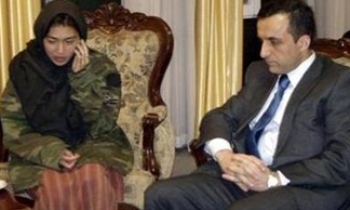(CEPET/IFEX) - Mexico, 25 September 2007 - Arcadio Acevedo, a columnist with the newspaper "Expreso de Chiapas", has denounced the media coordination office of the government of Chiapas (Coordinación de Comunicación Social, Cocoso) for threatening to withdraw official advertising from the newspaper if he continues writing on "forbidden topics". He further claims that such pressures are exerted regularly on media outlets throughout the state, to the detriment of press freedom.
Acevedo, author of the column "Minifaldas", made the denunciation in an open letter, dated 27 September 2007, to Juan Sabines Guerrero, the governor of the southern state of Chiapas.
"My employers pay me, but they do not publish my work if I touch on certain topics or people. Jacobo Elnecavé, a Cocoso official, conditioned their advertising contract with us on my good behaviour," the journalist told CEPET.
The columnist says he once received a telephone call from Elnecavé, in which he asked Acevedo to "write nice columns".
Acevedo added that "through economic agreements that newspapers have not benefited from for years, the government is now controlling editors, who - out of ambition or fear - censor stories, or refuse to publish them, or, simply, fire journalists who are inconvenient."
Acevedo insists that his is not an isolated case, although he claims it is one of the "less serious ones".
"I know of some colleagues who have suffered the same shameful treatment in other media outlets - in almost every media outlet, it would be more accurate to say. I know of other colleagues who, because their bosses panicked or acted in professional self-interest, were fired from posts they had occupied for years," the journalist states in his open letter.
The best known case is that of the host of a television news programme on Canal 10, who was fired for covering a story about some elderly women who were run over and killed by a bus that was transporting peasants to a voting station. To date, no journalists' organisation has protested his case, nor come to the defense of his colleagues.
In the same letter, Acevedo asks Sabines to safeguard the right to freedom of expression for the people of Chiapas, not as a gracious act of generosity, but rather because he is constitutionally obliged to do so.
Acevedo also told CEPET that he does not mean to confront or accuse anyone in particular. "Freedom of ideas should be protected by the government because the government, too, benefits from the existence of this right." Acevedo also called upon all journalists to "be responsible, and say what must be said."









